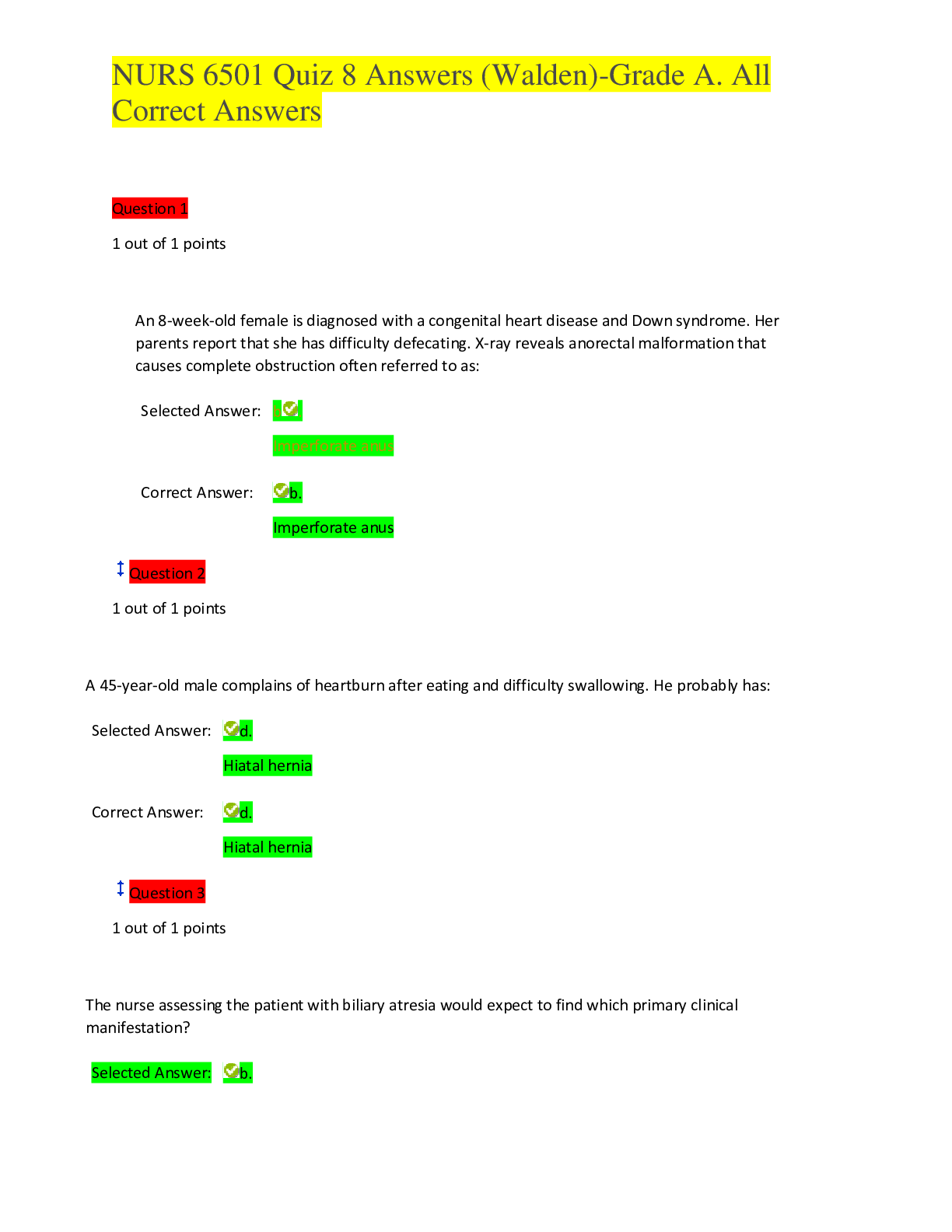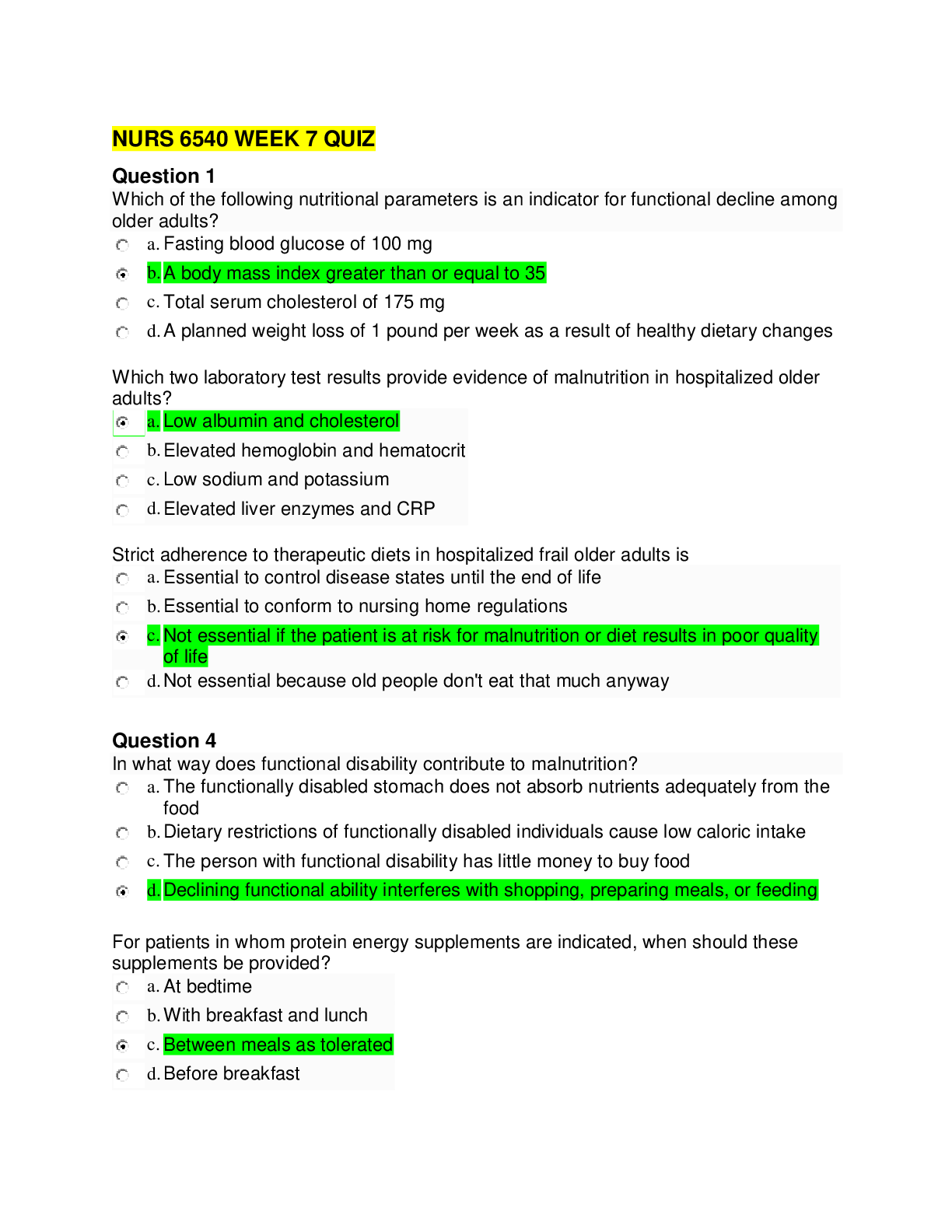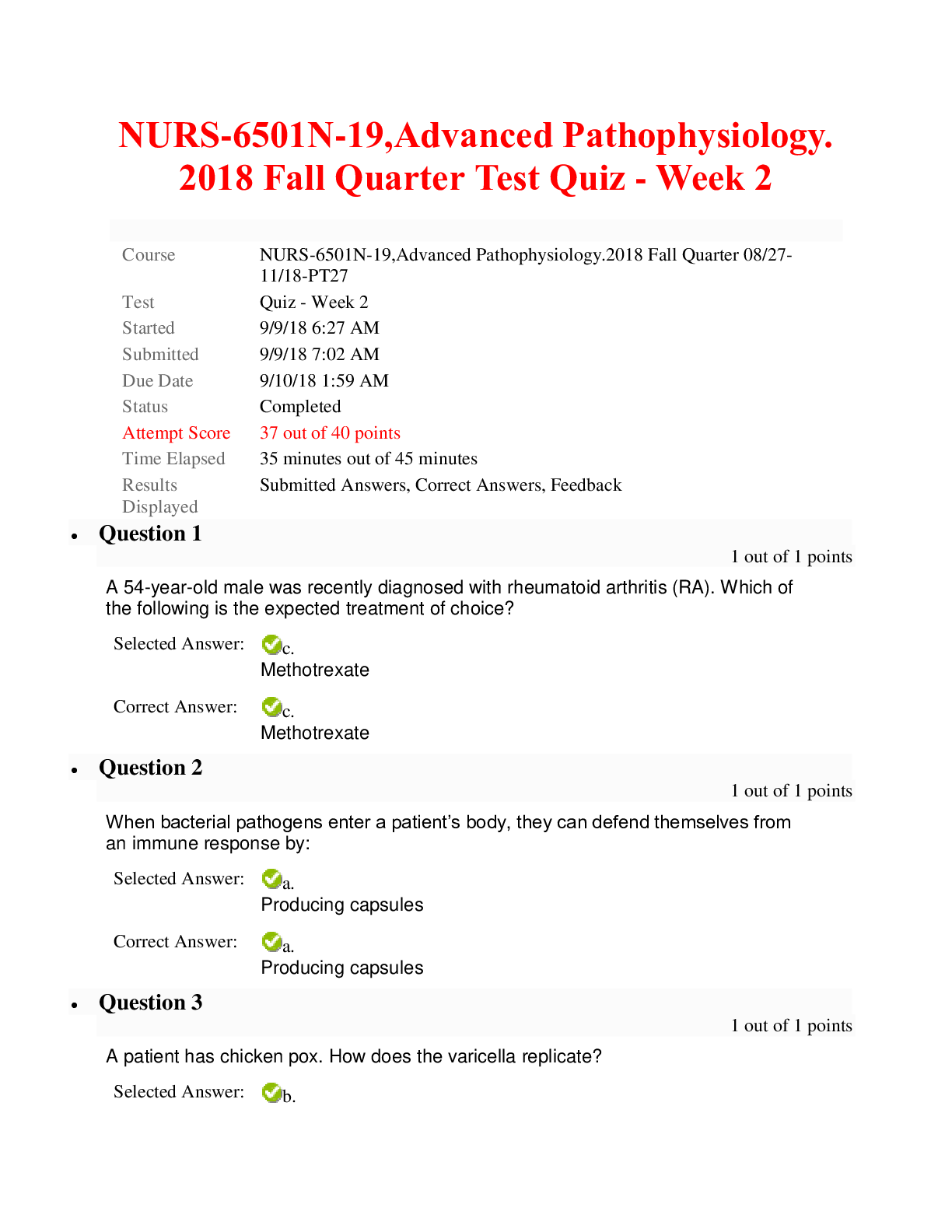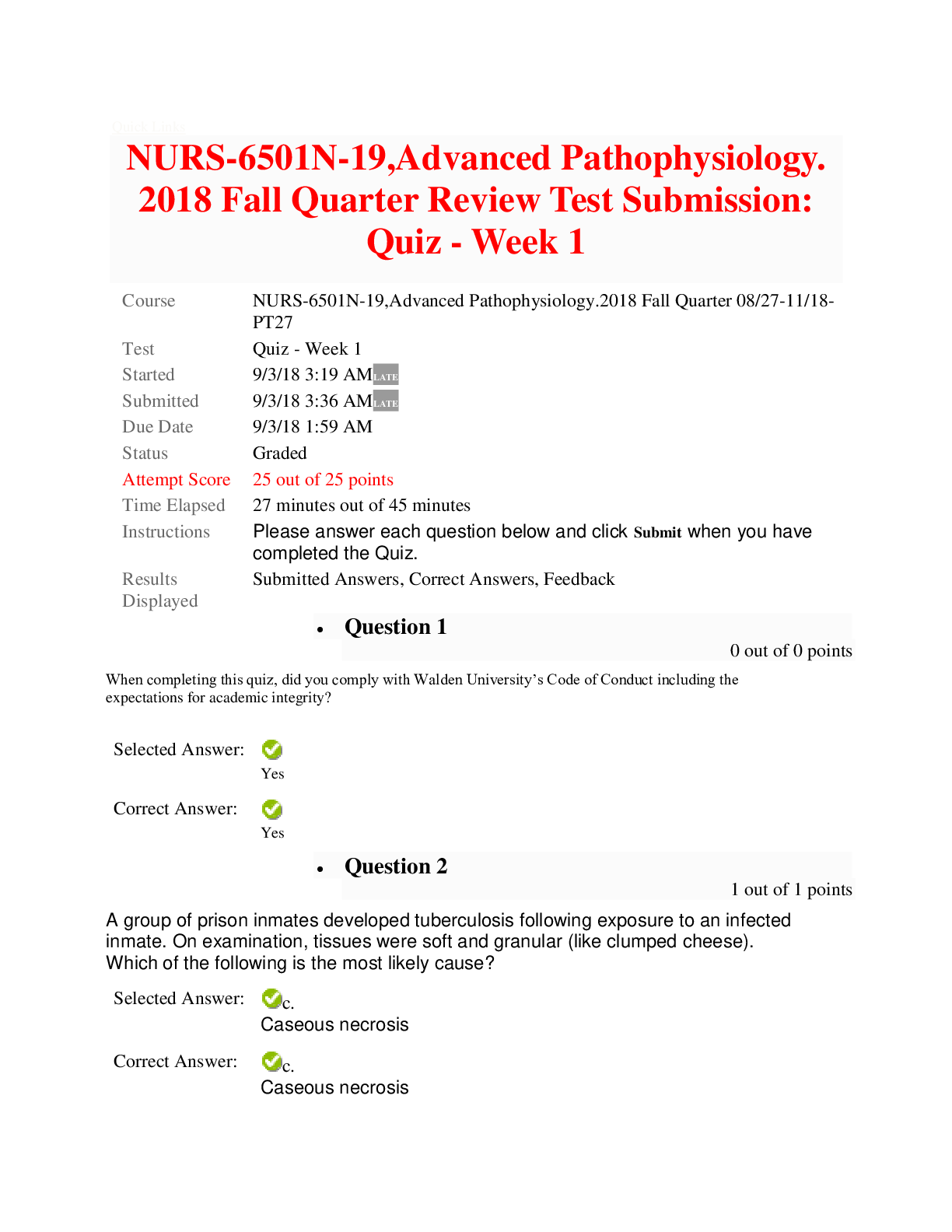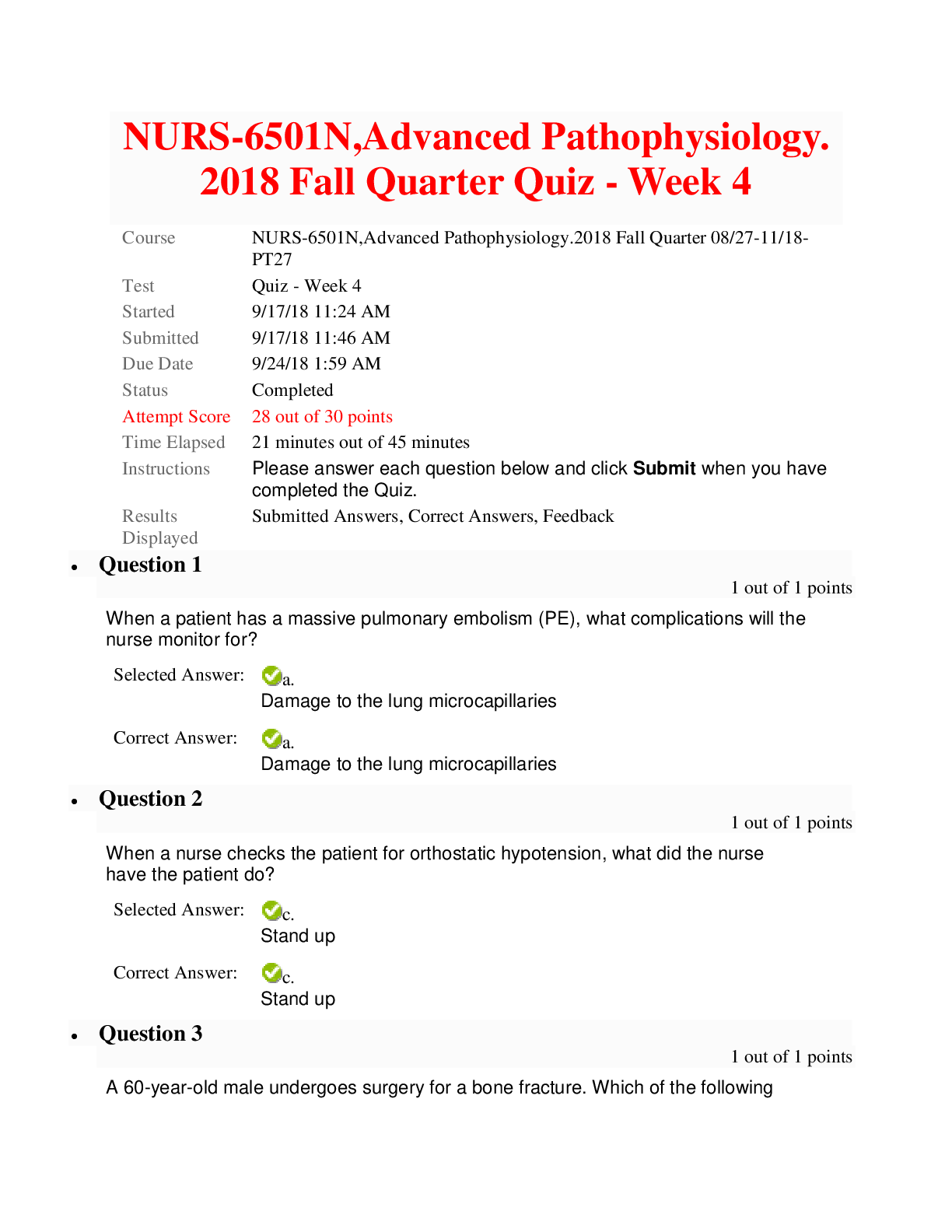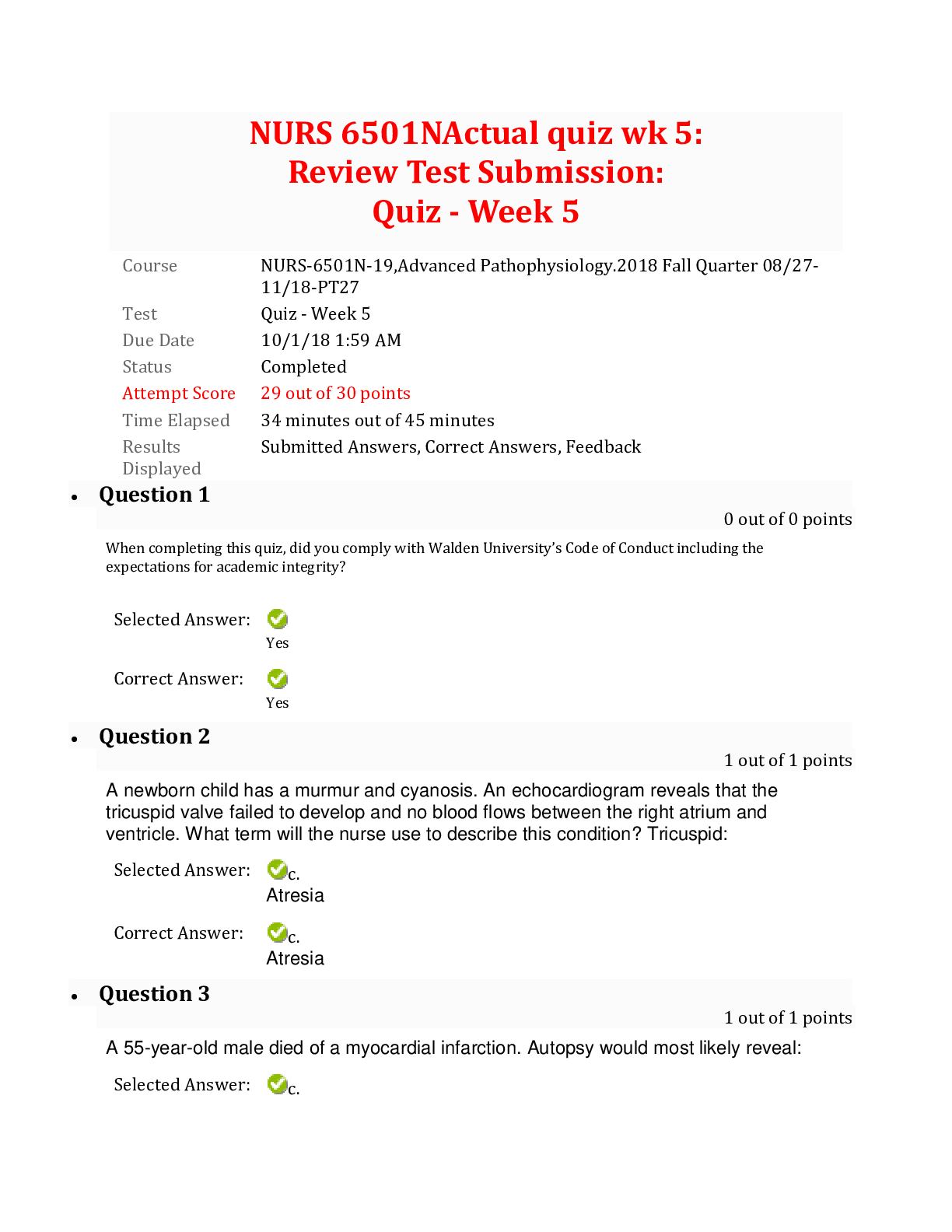*NURSING > QUESTIONS & ANSWERS > NURS 6550N Week 8 Board Vitals Quiz | 115 Q&A | Walden University (All)
NURS 6550N Week 8 Board Vitals Quiz | 115 Q&A | Walden University
Document Content and Description Below
Walden University - NURS 6550NWeek 8 Board Vitals Quiz 1. A 35-year-old man is for a physical examination. Labs reveal an HIV test that is positive. He undergoes counseling regarding his diagnosis. H... is CD4 count is 125, and viral load is 36,000; he is Toxoplasma gondii IgG positive. His hepatitis panel shows hepatitis B surface antibody positive and hepatitis C antibody negative. He had a tuberculin skin test (TST) reaction measuring 4 mm. Which of the following prophylaxis treatments for opportunistic infections should you offer? 2. Which of the following is a risk factor for urinary tract infection in sexually active women? 3. A 39-year-old female presents with anxiety and frequent “panic attacks.” She was seen 2 weeks ago, and her examination was unremarkable. The patient is referred to a therapist for a psychological evaluation. She returns today while experiencing a panic attack. She is diaphoretic with a heart rate of 101, blood pressure of 150/90, and papilledema. The patient denies chest pain or dyspnea. She states this is a typical episode. Which of the following tests is the next best step in establishing a diagnosis? 4. Which of the following is true of management goals in sepsis? 5. A patient presents with the lesion shown below. Which of the following drugs should be given as post-exposure prophylaxis (PEP) for this disease? 6. A 45-year-old white woman with clinical findings suggestive of Cushing syndrome has 2 elevated late night salivary cortisol levels and 2 elevated urinary free-cortisol tests of 220 and 300 (normal 2-50mg/24 hour); her ACTH level is 55 (normal 5-50pg/mL), and her pituitary MRI shows a 3mm adenoma. Which of the followings is the best next course of action? 7. A female patient with primary hypothyroidism has been stable (normal TSH) on replacement LT4 (dose 1.6μg/kg of body weight) for several years. On annual follow-up, the following laboratory tests are obtained: T4 = 14.1μg/dL (normal 5.0-10.5) and TSH = 23.4μU/mL (normal 0.4-5.5). Which is the most likely diagnosis? 8. Which of the following is the organism most frequently implicated in toxic shock syndrome in women who are using tampons? 9. Rocky Mountain spotted fever is caused by which of the following? [Show More]
Last updated: 8 months ago
Preview 5 out of 28 pages

Loading document previews ...
Buy this document to get the full access instantly
Instant Download Access after purchase
Buy NowInstant download
We Accept:

Reviews( 0 )
$9.00
Can't find what you want? Try our AI powered Search
Document information
Connected school, study & course
About the document
Uploaded On
Feb 06, 2020
Number of pages
28
Written in
Additional information
This document has been written for:
Uploaded
Feb 06, 2020
Downloads
0
Views
176


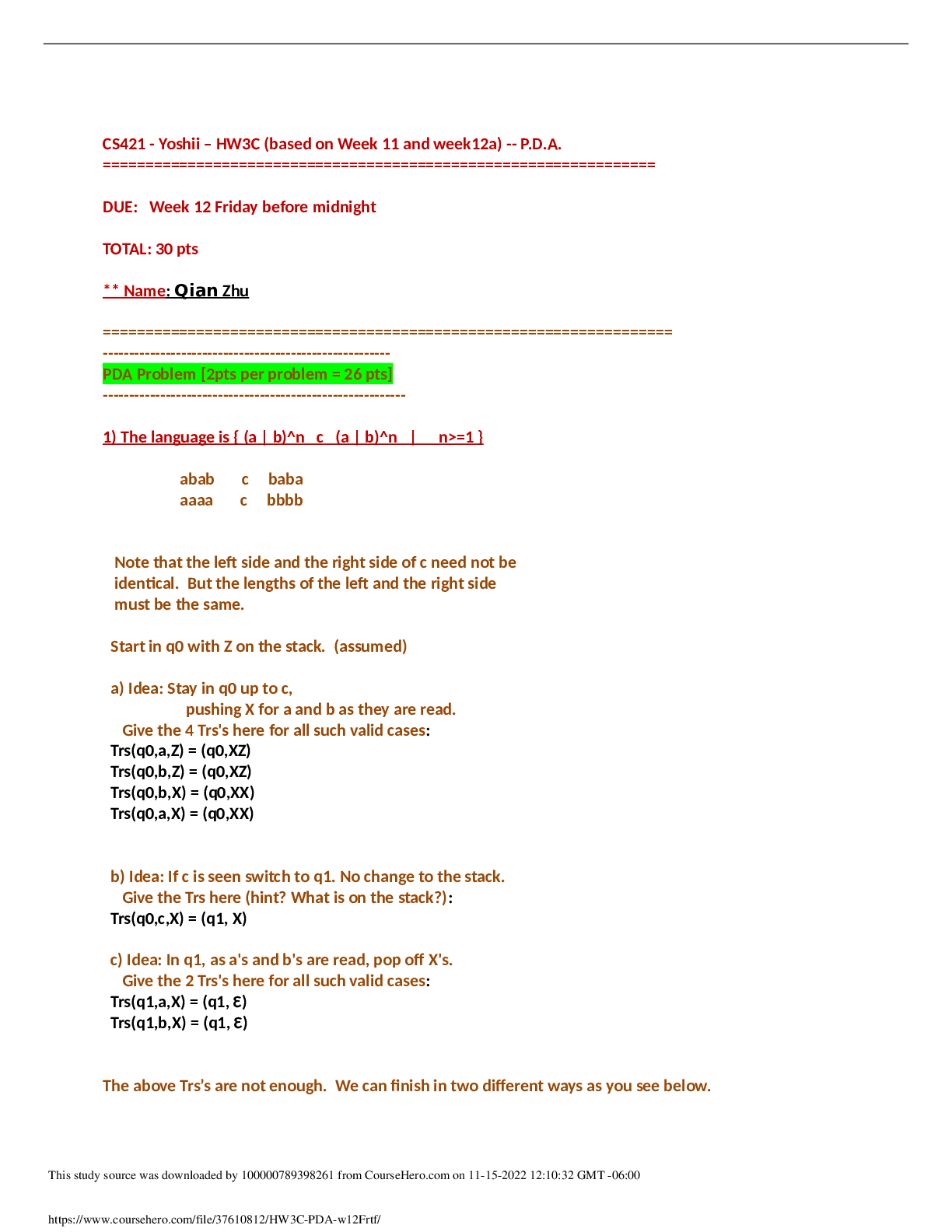


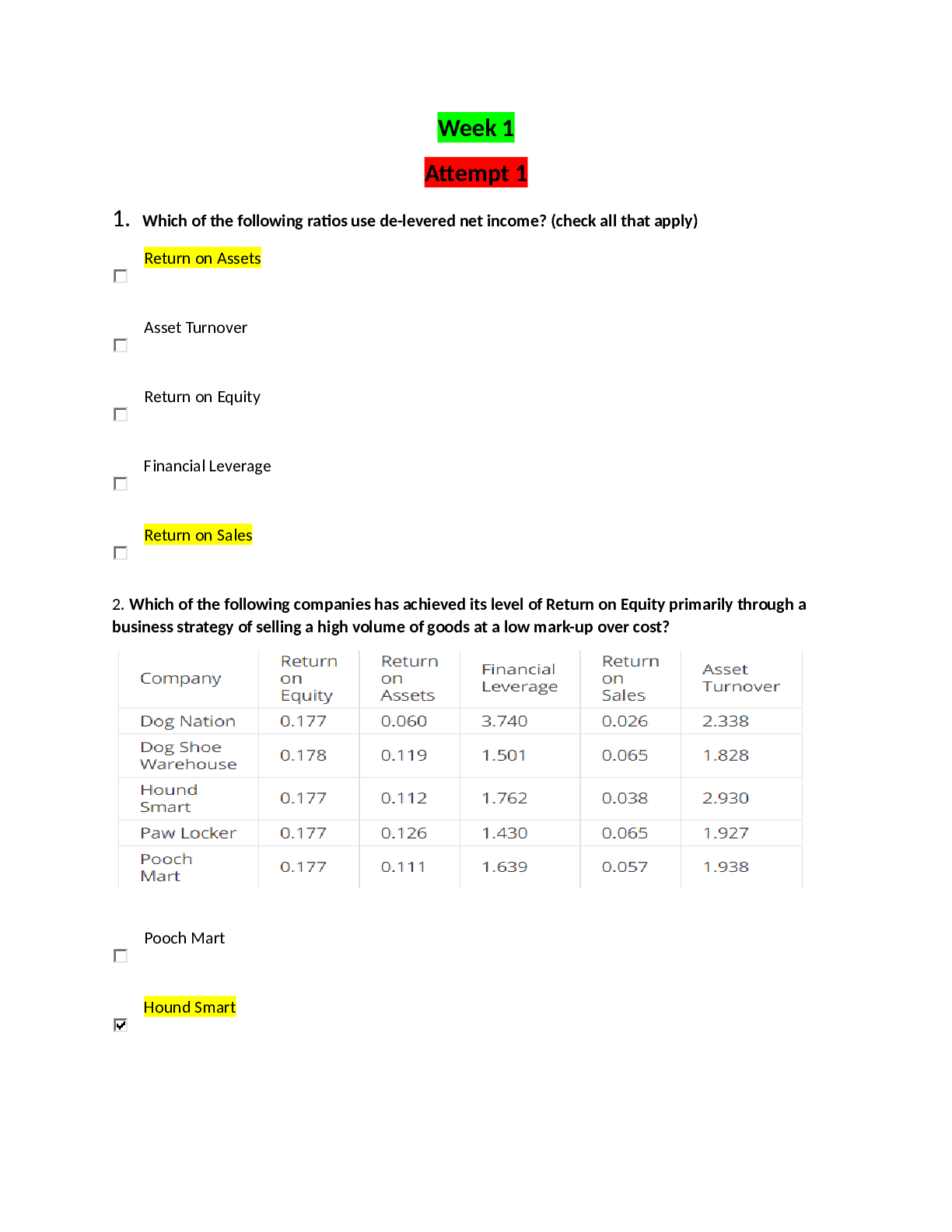
.png)
.png)
.png)
.png)
.png)
.png)
.png)


